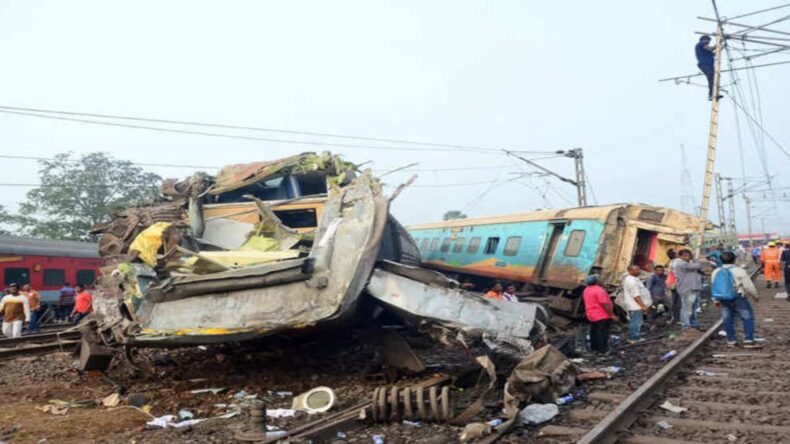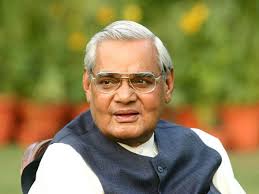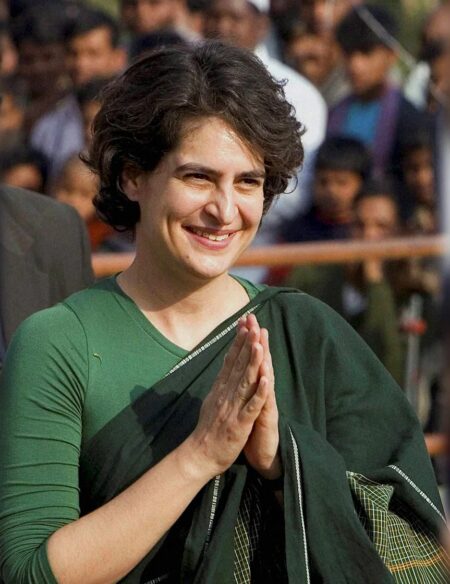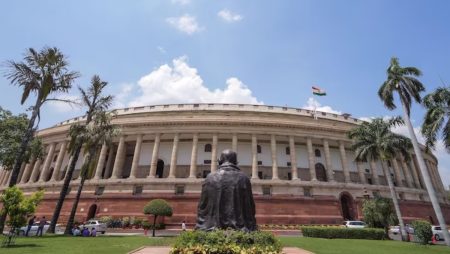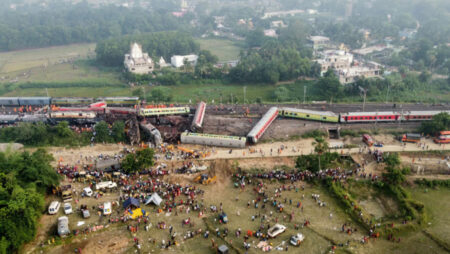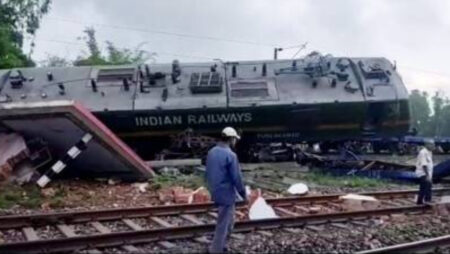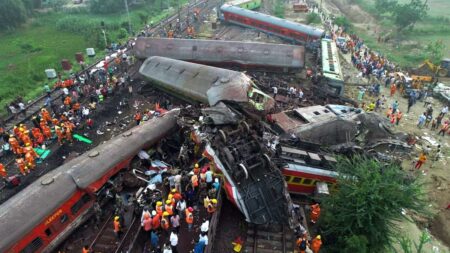New Delhi: In a deadly train accident in Odisha’s Balasore on Friday, at least 300 passengers have been killed and 803 are reportedly injured. The horrific incident took place around 7 pm when the Shalimar Chennai Coromandel Express faced the derailment of 12 coaches and fell on the opposite track, colliding with Bengaluru-Howrah Superfast Express, derailing four of its coaches.
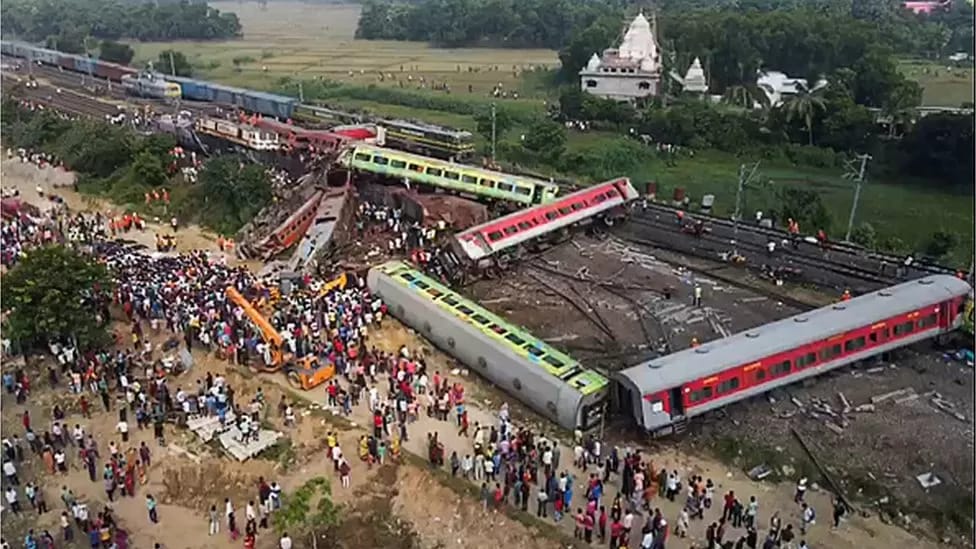
Source: AFP Image
Along with both the passenger trains, a goods train was also involved in the collision, adding more damage to the tragedy. According to railway officials, more than 3,400 passengers were traveling by the two trains.
Ashwini Vaishnaw, the Union Railway Minister, in a conversation with the news agency ANI said that the authorities have identified the root cause of the accident. He also said that they have removed all bodies and their target is to complete the restoration process by Wednesday morning, to make trains run on the track again.
Meanwhile, Prime Minister Narendra Modi, on Saturday, visited the accident site to inspect the ongoing rescue operations. The PM was accompanied by the railway minister Ashwini Vaishnaw, and Dharmendra Pradhan, the Union Education Minister.
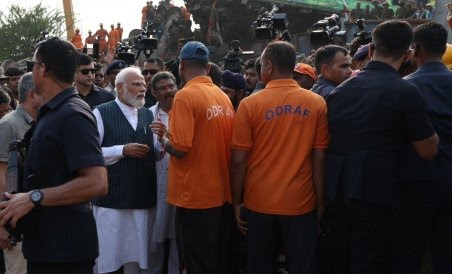
Image source: ANI
PM Modi met the survivors of the tragic accident and assured them that the government will help and treat the injured passengers. The Prime Minister also said that instructions have been issued for a probe and the investigation will be done from every angle.
He added that strict punishment will be given if anyone is found guilty of causing the tragedy. The PM further expressed his gratitude to the local people who helped the victims of the accident.
Rs 10 lakh has been announced by the railway ministry and Rs 2 lakh by the PMO’s office for the accident victims.
Naveen Patnaik, the Chief Minister of Odisha, too declared that RS 5 lakh will be granted to the families who lost their members in the tragedy.
Past deadly train accidents
India’s extensive railway network serves as a lifeline for millions of people, transporting them across the vast expanse of the country. However, the safety of the railway system has been a longstanding concern. Despite significant improvements in infrastructure and safety measures, train accidents continue to occur, resulting in the tragic loss of life and property.
Here are some of the most tragic rail mishaps that have occurred in India in recent or past decades:
Bihar 1981: One of the deadliest train accidents in India and the second-largest worldwide, Bihar witnessed a devastating rail disaster in June 1981. The tragedy unfolded on June 6, 1981, when an overcrowded passenger train, traveling from Mansi to Saharsa, derailed from a bridge and plunged into the Bagmati River during a cyclone in Balaghat, Bihar. The accident took a severe toll, with at least 800 people dying.
The exact death count varied between estimates of 800 to 2,000, as authorities faced immense challenges in recovering bodies from the waterlogged wreckage over several days of rescue efforts. The train, carrying not only regular passengers but also four large wedding parties, was heavily overloaded, making it impossible to ascertain the exact number of passengers onboard.
The Bihar Rail Disaster of 1981 served as a haunting reminder of the urgent need for improved safety measures and stricter enforcement of capacity regulations to prevent such catastrophic incidents in the future.
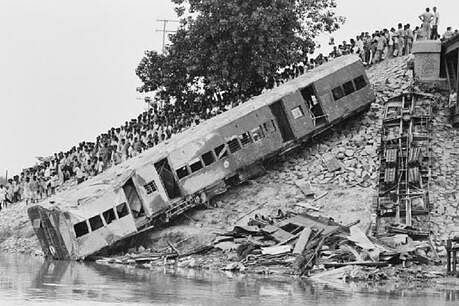
Image source: Twitter
Firozabad 1995: On August 20, 1995, a tragic train accident known as the Firozabad rail disaster shook the nation when two trains collided approximately 200 km from Delhi. The incident occurred at 02:55 in the morning when a passenger train collided with another train that had come to a halt after hitting a nilgai, a type of antelope.
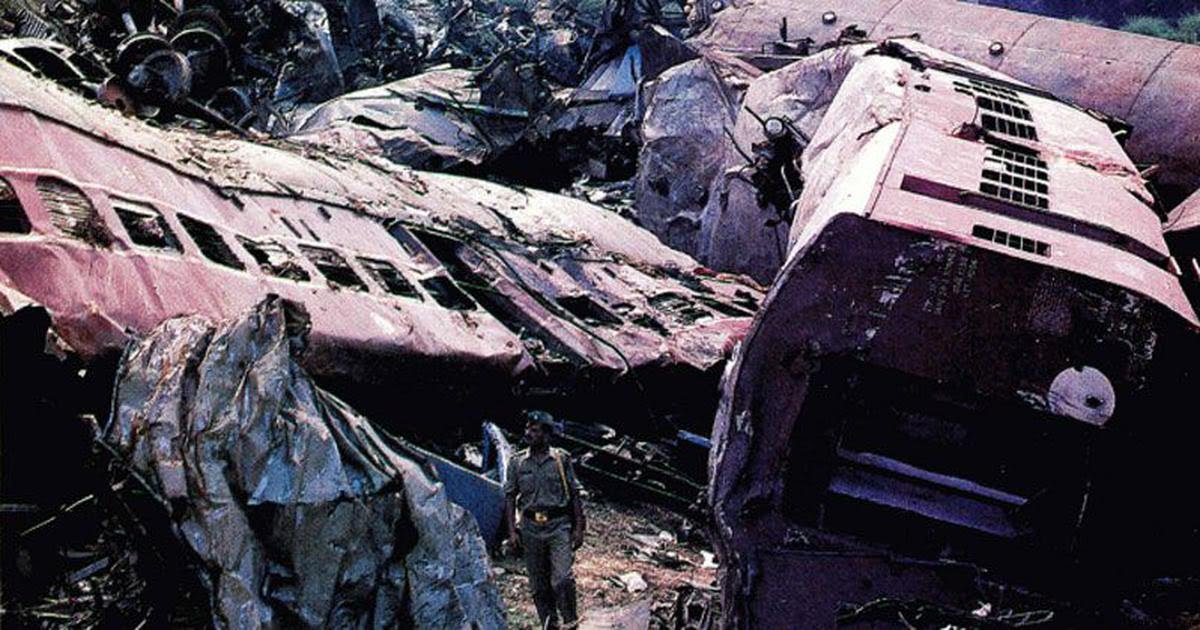
Image source: India Today
The collision resulted in a devastating loss of life, with at least 350 people reported dead. The incident sent shockwaves throughout the country, highlighting the urgent need for improved safety measures and infrastructure in the Indian Railways.
Amritsar Train Accident (October 2018): On October 19, 2018, a tragic train accident occurred in Amritsar, Punjab, during the celebration of the Hindu festival of Dussehra. A speeding throw led into a crowd of people who were standing on the railway tracks to watch the burning of a Ravana effigy. The accident claimed the lives of at least 60 people and injured many others.
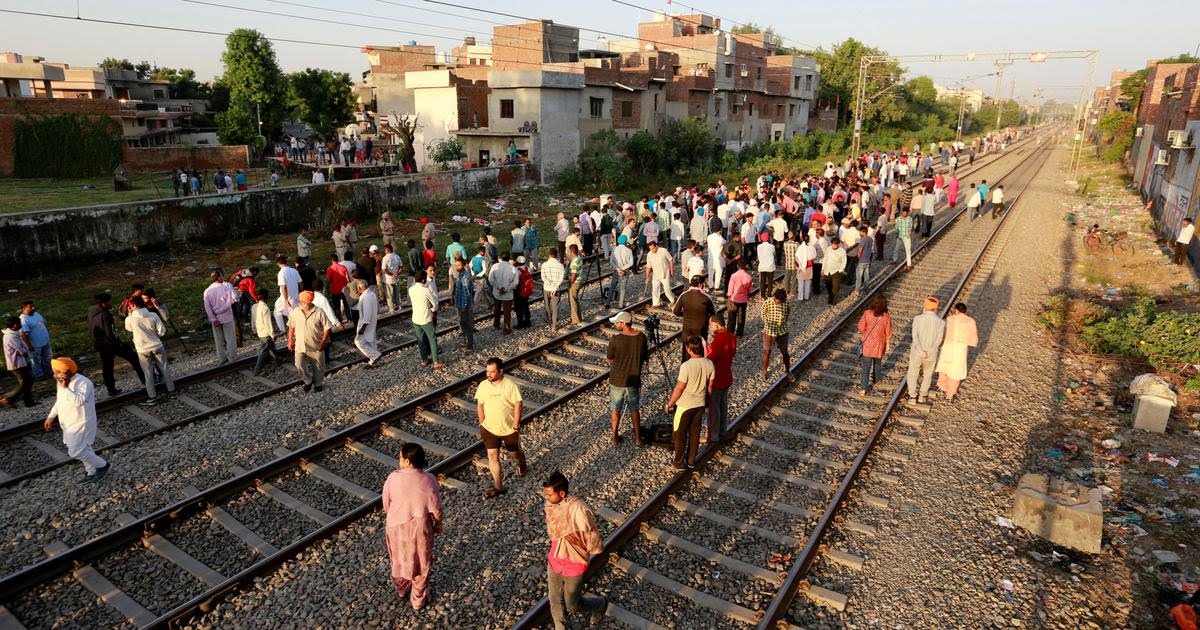
Image source: Reuters
The incident raised questions about inadequate safety measures and lack of coordination between event organizers and the railway authorities.
Kanpur Train Derailment (November 2016): One of the deadliest train accidents in recent years took place near Kanpur, Uttar Pradesh, on November 20, 2016. Fourteen coaches of the Indore-Patna Express derailed, resulting in the loss of 150 lives and injuring over 200 people.
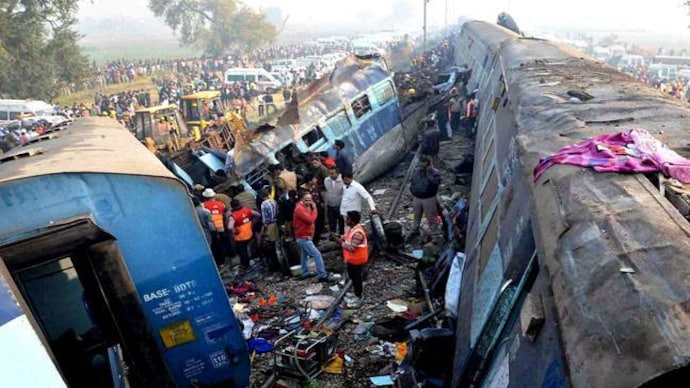
Image source: PTI
The accident was attributed to a fractured railway track caused by a suspected rail fracture, highlighting the need for regular maintenance and inspections to prevent such incidents.
Kalinga Utkal Express Derailment (August 2017): The Kalinga Utkal Express derailed in Muzaffarnagar, Uttar Pradesh, in August 2017, resulting in the loss of 23 lives and injuring over 150 people. The accident was attributed to a failure to adhere to speed limits and inadequate maintenance of tracks. The incident highlighted the critical need for strict enforcement of safety regulations, regular training of railway personnel, and the implementation of advanced technologies to prevent similar mishaps.
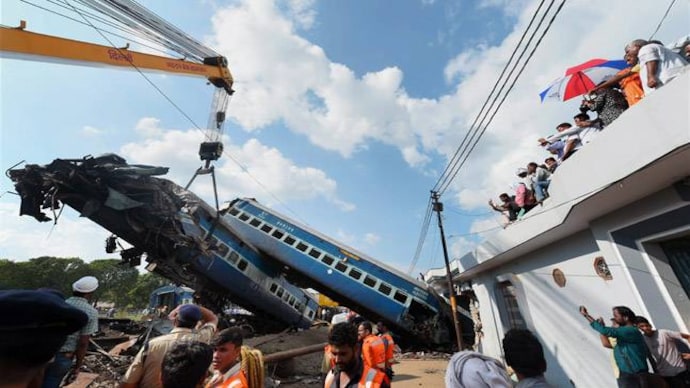
Image Source: PTI
These deadly train accidents serve as painful reminders that safety improvements in India’s railway system are essential. While the Indian Railways has made notable strides in infrastructure development and safety measures, these incidents emphasize the need for ongoing vigilance, rigorous maintenance, advanced technology deployment, and a culture of safety. Addressing these concerns will play a vital role in safeguarding the lives of millions of passengers who rely on the Indian Railways each day.







